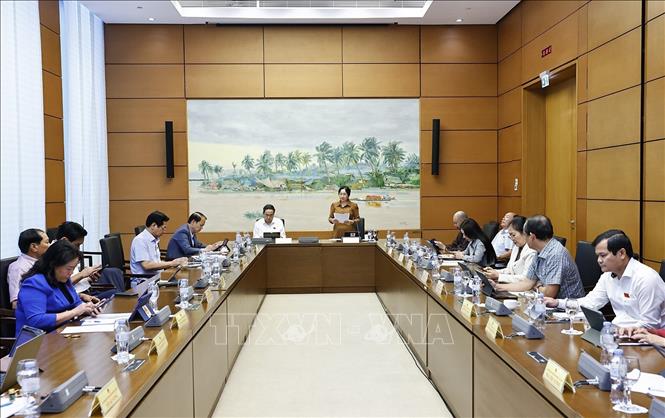
Clearly define policies to support maintaining birth rates.
Participating in the discussion on the draft Law on Population, delegate Quang Thi Nguyet (Dien Bien) agreed with the Government's Submission, the Verification Report of the Committee on Culture and Society and the policies stipulated in the draft Law including maintaining the replacement fertility rate, minimizing gender imbalance at birth, adapting to population aging and improving population quality.
Regarding the policy of maintaining the replacement fertility rate, the draft Law stipulates a number of policies such as financial support for women of ethnic minorities, women who give birth to two children before the age of 35 in localities with low fertility rates; priority for buying or renting social housing for women who give birth to two children or men with two children whose wives have passed away. The draft Law assigns the Government to stipulate details, and at the same time allows localities to base on socio -economic conditions and budget balance capacity to stipulate specific support levels, but not lower than the minimum level prescribed by the Government.
"However, reality shows that many localities are still facing difficulties, such as Dien Bien province, and it is very difficult to balance the budget to issue and implement support policies," the delegate said.
Therefore, delegate Quàng Thị Nguyệt proposed to regulate in the direction: The Government issues a minimum support policy and has a mechanism to provide additional support for disadvantaged localities to implement. Based on the specific conditions of each locality and the ability to balance the budget, local authorities can supplement the subjects, content and level of support, in order to ensure the maintenance of replacement fertility in the area.
Regarding the regulations on priority for buying or renting social housing, delegate Quàng Thị Nguyệt said that it is necessary to clarify the conditions for beneficiaries to avoid taking advantage of the policy for those who do not directly raise children; clarify the scope of application of financial support policies for ethnic minority women - is it support for all ethnic minority women or only applied to the group of "very small ethnic groups", to ensure accurate expression, consistent with the current legal system.
Considering that the draft Population Law is still heavily policy-oriented, delegate Truong Thi Ngoc Anh (Can Tho) proposed that many regulations with an encouraging and motivating nature should be regulated as mandatory responsibilities for people, communities and local authorities to seriously implement.
For example, the regulation on reducing gender imbalance at birth includes the content: "No preference for male over female, no gender selection at birth" in the village and community conventions, delegate Truong Thi Ngoc Anh said that this regulation is only for encouragement and motivation; it should be turned into sanctions, regulating the community's responsibilities when building village and community conventions. Along with the regulation prohibiting gender disclosure during pregnancy check-ups, the draft Law supplements the specific responsibilities of the community and practical solutions such as policies to care for, care for, and support girls from birth to adulthood into women.
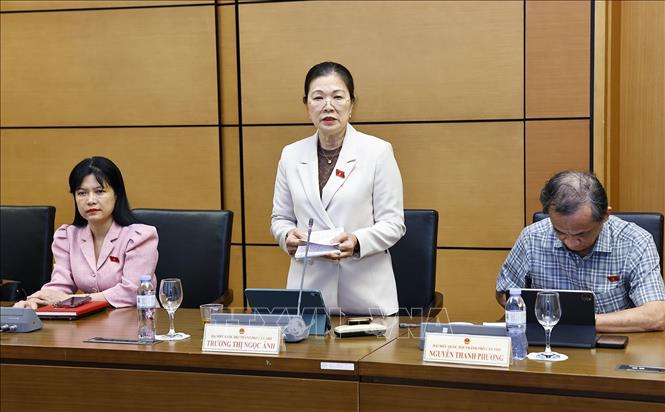
Regarding reasonable population distribution, delegate Truong Thi Ngoc Anh said that it should be regulated in a separate chapter, clarifying more specific responsibilities of local authorities in monitoring and managing population movement; building economic development plans, creating jobs to retain residents in the locality; combining socio-economic planning with reasonable population distribution.
In addition, the draft Law needs to supplement regulations on policies to adapt to population aging such as the responsibilities of the community and family; preferential policies to encourage businesses to invest in the field of elderly health care, develop nursing homes and health care centers for the elderly, to improve the quality of life and ensure social security for the elderly; train and foster human resources for population work, to meet practical requirements in the new period...
According to delegate Nguyen Thien Nhan (Ho Chi Minh City), it is necessary to clarify the guiding viewpoints of population work. That is, to determine that population work has a particularly important position for the country to develop sustainably and for people to be happy. Along with that, population work requires the responsibility of the whole society, including the Government, organizations such as health, education, media, business owners, socio-political organizations, all people and each family.
Analyzing the reasons for the low birth rate in European and Asian countries, delegate Nguyen Thien Nhan said that many households (about 30%) with 2 working people do not have enough income to raise 2 children. Therefore, the delegate recommended: "Ensuring a minimum wage so that 1 working person can support himself and 1 child is the most important direct condition to maintain the replacement birth rate. Otherwise, all other policies only encourage and support but cannot solve the problem."
Along with that, delegates said that there should be synchronous solutions from solutions on communication education, economy, health, education, housing, gender equality, emulation and other tasks; integrating population work goals and solutions into strategies, plans, programs, socio-economic development projects of each region, industry, the whole country and work plans of units and organizations...
More clearly define the organization, human resources and financial resources for preventive medicine at the grassroots level.
This afternoon, the National Assembly discussed in groups the Law on Disease Prevention. National Assembly deputies requested that the drafting agency continue to review and research to fully institutionalize the Party's viewpoints on public health care, especially the contents of Resolution No. 72-NQ/TW of the Politburo on a number of breakthrough solutions to strengthen the protection, care and improvement of public health.
Some opinions suggested researching and supplementing appropriate regulations on prevention and control of infectious diseases, mental health disorders, and nutrition in disease prevention in the draft Law to ensure the implementation of the purpose of promulgating the Law and the balance between the 5 policies that have been codified in the draft Law...
Participating in the discussion of the draft Law, delegate Dao Chi Nghia (Can Tho) said that the promulgation of the law is an important step in institutionalizing the Party's policies and resolutions, especially Resolution No. 72-NQ/TW of the Politburo. This draft law inherits and replaces the 2007 Law on Prevention and Control of Infectious Diseases, expanding the scope of regulation to non-communicable diseases and mental health disorders, in line with the current trend of preventive medicine.
Pointing out groups of issues that need to be further improved, delegate Dao Chi Nghia said that it is necessary to strengthen technical standards and mandatory data connectivity, supplement regulations on unified national preventive medicine data standards, and ensure connectivity between the disease prevention information system and other medical databases. Along with that, it is necessary to build an early warning mechanism based on big data, apply multidimensional disease forecasting tools that integrate environmental and climate factors; and add the content of health risk management due to climate change to the state management task in disease prevention.
Along with that are clearer regulations on organization, human resources and financial resources for preventive medicine at the grassroots level; and stricter regulations on procedures and authority for compulsory medical isolation.
Delegate Dao Chi Nghia proposed more detailed regulations on the time frame and compensation process for compulsory vaccination; adding principles for spending health insurance funds on disease prevention, ensuring that it does not affect medical examination and treatment payments and fund financial balance.
Source: https://baotintuc.vn/thoi-su/quy-dinh-ro-chinh-sach-ho-tro-duy-tri-muc-sinh-20251023183902749.htm



![[Photo] Prime Minister Pham Minh Chinh meets with South African President Matamela Cyril Ramaphosa](https://vphoto.vietnam.vn/thumb/1200x675/vietnam/resource/IMAGE/2025/10/23/1761226081024_dsc-9845-jpg.webp)
![[Photo] President Luong Cuong holds talks with South African President Matamela Cyril Ramaphosa](https://vphoto.vietnam.vn/thumb/1200x675/vietnam/resource/IMAGE/2025/10/23/1761221878741_ndo_br_1-8416-jpg.webp)
![[Photo] Prime Minister Pham Minh Chinh chairs meeting on railway projects](https://vphoto.vietnam.vn/thumb/1200x675/vietnam/resource/IMAGE/2025/10/23/1761206277171_dsc-9703-jpg.webp)


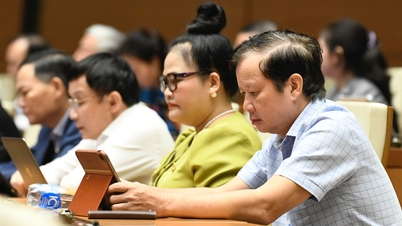



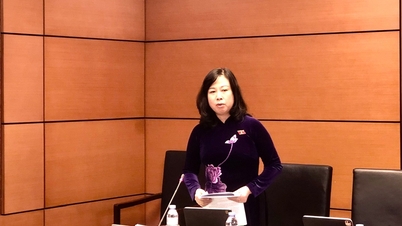
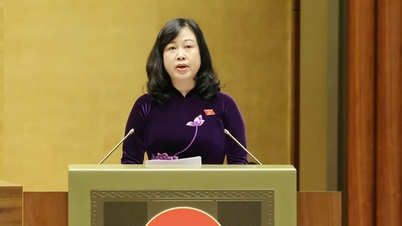






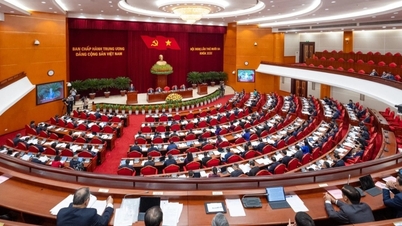

























































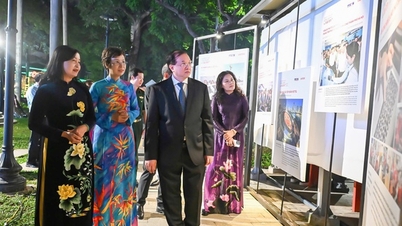




























Comment (0)